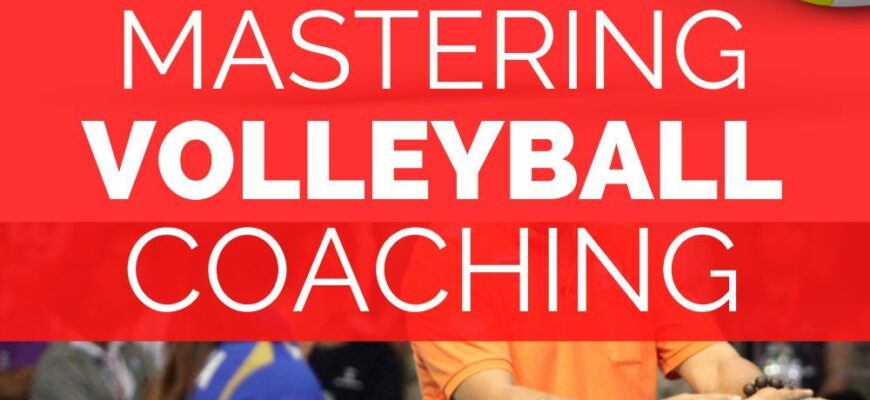As the European volleyball community looks towards the upcoming CEV Coaches Convention in Zadar, Croatia, a familiar and thought-provoking voice prepares to take the stage once more. Eric Hodgson, an expert known for his dynamic perspective on youth development and coaching, is set to challenge conventional wisdom and encourage a fundamental shift in how coaches perceive their role and the game itself.
Beyond the Scoreboard: Volleyball as a Learning Competition
Hodgson`s central thesis is both simple and profound: volleyball should be understood not just as a game, but fundamentally as a learning competition. This subtle rephrasing carries significant weight. It places the emphasis squarely on the developmental journey of the athlete, viewing the competitive environment as a powerful catalyst for growth and skill acquisition, rather than merely a test of outcomes.
His return to the convention, following a successful participation in Sofia in 2023, is driven by this philosophy. He describes his previous experience as “rewarding,” highlighting the high level of engagement and the mutual learning that occurred through countless side conversations with coaches from diverse backgrounds. For Hodgson, these conventions are not about delivering pronouncements from on high, but about participating in a collective exploration of best practices.
The Coach as Sherpa, Not Star
One of the most compelling analogies Hodgson employs is that of the coach as a “sherpa.” In this view, the coach`s job is to carry the load, navigate the challenging terrain, and establish the necessary infrastructure (practices, feedback, environment) so that the athletes—the true climbers—can successfully reach their own personal “Everests.”
“It’s not about us being in the center. That spot is reserved for the athlete.”
This perspective demands a significant shift away from coach-centric models, where the coach is the primary actor and decision-maker, towards an athlete-centered approach that fosters independence, creativity, and decision-making on the court. It requires coaches to relinquish the spotlight and instead focus on empowering their players.
Practical Application: Engaging Practices and Diverse Frameworks
How does this philosophy translate into daily training? Hodgson advocates for the increased use of tools like small court games. Unlike rigid, linear drills that often isolate skills, these games are designed to mirror the chaos and decision-making demands of a real match, allowing players to learn through active participation and problem-solving.
Furthermore, Hodgson stresses the importance of integrating insights from various coaching frameworks and even brain science into practice design. He notes that coaches might instinctively gravitate towards one preferred method, but the most effective approach involves drawing from a wide range of ideas. It`s about building a comprehensive coaching toolkit, or as he puts it, “broadening your coaching quiver,” to provide athletes with the richest possible learning experience.
Meeting the Evolving Athlete
Spending summers immersed in camps provides Hodgson with a direct view of athlete behavior and expectations. A clear trend he observes is the increasing demand for engaging and efficient training sessions. The era of standing around, listening to lengthy lectures, or mindlessly repeating boring drills is, thankfully, fading.
Frankly, it should come as no shock that athletes prefer to spend their valuable time moving, thinking, and playing the game they came to enjoy. Hodgson’s observation serves as a sharp reminder that effective coaching today means designing practices that respect the athlete`s time and attention span, keeping them actively involved and challenged.
More Than Just a Meeting: A Movement
The themes of the upcoming CEV Convention—”The Coach in the Centre,” “From Local to International,” “Inspiration in Motion,” and “Not Just a Convention, a Movement”—align perfectly with Hodgson`s views. While the theme “The Coach in the Centre” might seem counter-intuitive to his athlete-first mantra, within the context of the convention, it likely refers to supporting the *development* of the coach as the central figure in the athlete`s journey, empowering them to *be* that effective sherpa.
- “Inspiration in Motion” encapsulates the joy and discovery that comes from learning through play and movement.
- “From Local to International” highlights the foundational role of grassroots development in nurturing future talent and lifelong engagement with the sport.
- “Not Just a Convention, a Movement” speaks directly to the power of collective learning, shared ideas, and the continuous evolution of coaching methodologies within the community – precisely what Hodgson values most about the event.
In Zadar, Eric Hodgson is poised to deliver more than just presentations. He aims to provoke reflection, challenge established norms, and inspire coaches to explore new avenues for athlete development. His vision of volleyball as a learning competition, coupled with practical strategies for creating engaging, athlete-centered environments, promises to make his sessions a highlight for those seeking to evolve their coaching practice.









